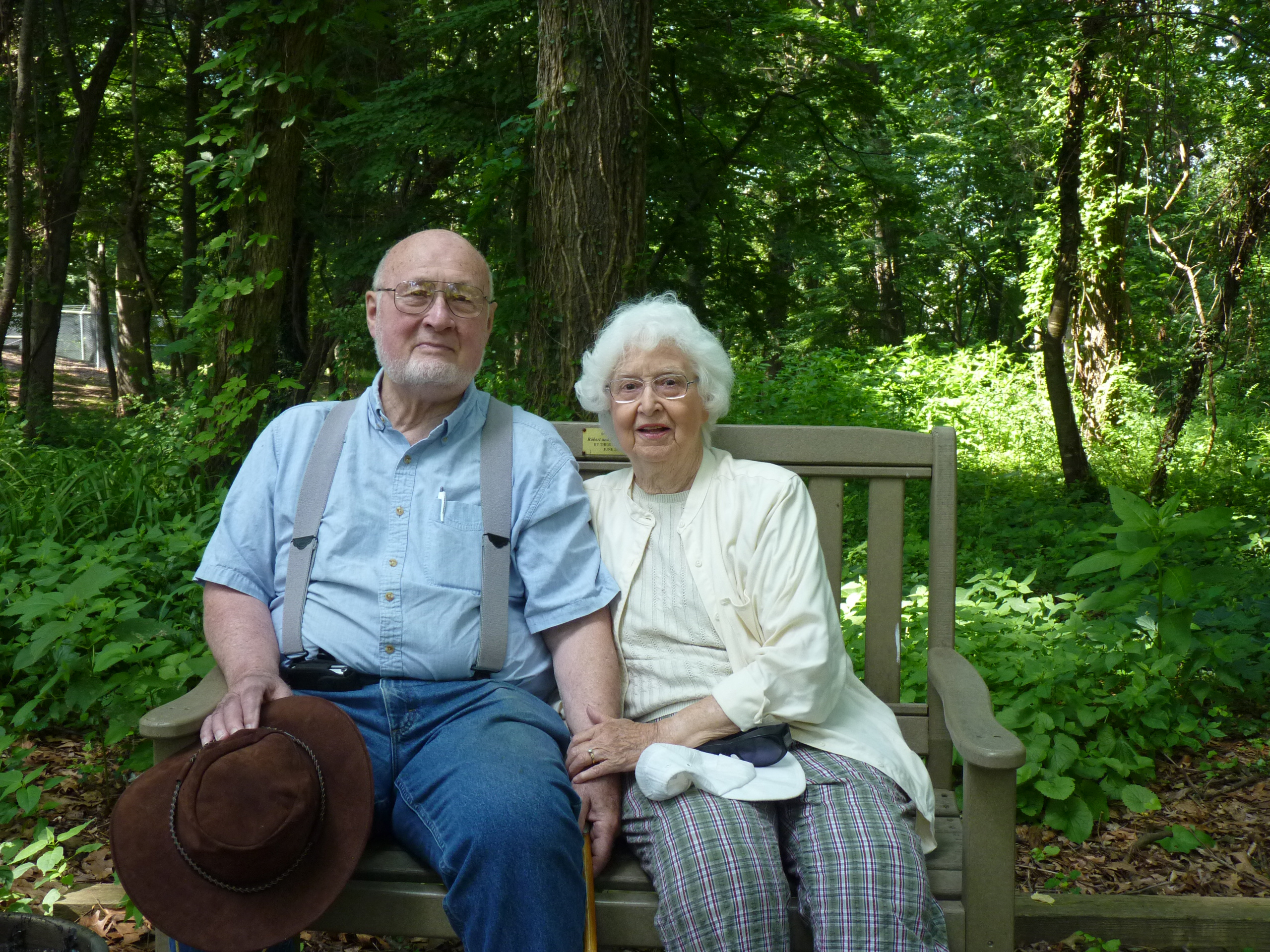Virginia Tech's International Peace Garden seeks caretakers

The idea of creating a garden devoted to peace appealed to Professor Robert (Bob) L. Youngs in 1993, when he was chair of the Montgomery County Rotary Club’s International Service Committee.
Youngs, of Blacksburg, Va., now professor emeritus of forestry and forest products in Virginia Tech’s College of Natural Resources and Environment, wasn’t aware the plot beside Virginia Tech’s Cranwell International Center had an interesting past. He and the Rotary Club were simply looking for a good spot for a peace garden to honor the international community and symbolize their commitment to advancing international understanding.
The plot, a half acre on the east edge of campus, seemed destined to be taken over by the adjacent woods, overgrown with shrubs and shaded by large oaks. But when Youngs and his wife, Esther, found clumps of domestic daylilies and pieces of concrete sidewalk during their initial excavations, they headed to the university library archives.
“It turned out that spot had been a trailer camp, providing housing for married World War II veterans studying at [Virginia] Tech under the G.I. Bill,” Bob Youngs said of the site that once contained 76 trailers.
Nicknamed “Hurricane Hill” for its windy location on the slope that today overlooks the Washington Street tennis courts, the site was one of three trailer camps hastily assembled on campus to house the postwar influx of married veterans. Holding a fleeting spot in Hokie history, the camps were removed in the early 1950s when more suitable housing became available for married students.
The Youngses and volunteers from the Rotary Club and Virginia Tech created a garden of wandering paths and plantings of shrubs and flowers, based on a design by Matt Gart, university landscape architect. The couple tends the garden spring through fall, doing hands-on work as well as supervising volunteers from Virginia Tech, particularly the YMCA at Virginia Tech, as well as Blacksburg High School and the local community.
After creating and caring for the International Peace Garden for almost 19 years, the Youngses are ready to step aside. They’re looking for a volunteer caretaker or group, possibly a garden club, to take their place maintaining the garden and overseeing the volunteers who plant, weed, groom, and water when necessary.
“Our minds are still willing, but our bodies aren’t as able,” said Bob Youngs, now 87. “It’s time to hand over the reins.”
Lush ferns and hostas grow in the shade of oak and cherry trees. Plantings are chosen not only for their beauty, but also for their ties to regions that have been ravaged by war and are now peaceful or struggling toward peace.
Bosnian pine, cedar of Lebanon, Korean dogwood, Chinese holly, and Japanese fir grow peacefully side by side, along with Colorado blue spruce and redbud from the United States. Flowers that originated in Asia, Africa, Central and South America, and Europe grow together with North American species in this cosmopolitan plot.
Memorials to international students and others active in promoting international peace stand among the plantings. Roses honor a young girl whose parents were graduate students from Mexico; their daughter loved flowers before her untimely death. A spruce honors Chen Lian, a Chinese graduate student who was killed in California just as his academic career was taking off.
Evelyn “Sandy” Dawson, who lived in the trailer court with her husband, Bill, while he was a student, donated lilies. A pot of rosemary and a stone bearing the prayer of St. Francis of Assisi (“Lord, make me an instrument of your peace. Where there is hatred, let me sow love.”) honor those who died on April 16, 2007.
Years of work have created a place of peace and reflection on a busy campus. The residents of Hurricane Hill, having seen the horrors of war firsthand, would have truly appreciated such peace.
The Youngses’ children have dedicated a garden bench in honor of their parents. Overlooking the garden, the woods, and the Virginia Tech campus, it sits, waiting to provide a restful pause for the next caretakers of the International Peace Garden.
For more information or to volunteer, email Bob Youngs or call 540-951-4079.




